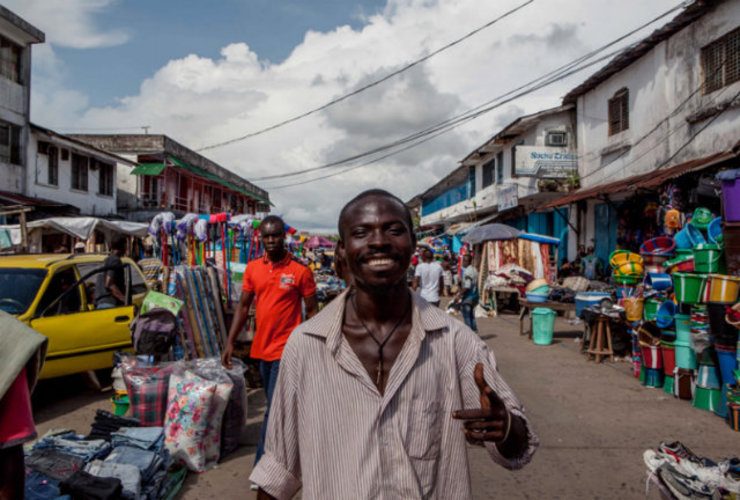SUMMARY
This is AI generated summarization, which may have errors. For context, always refer to the full article.

MANILA, Philippines – Explaining the socio-economic impact of the Ebola crisis from job losses and low revenue to low productivity and low growth, a report by the United Nations Development Programme (UNDP) urged the international community to divert capital to hardest-hit countries by the disease.
“The disease is unleashing havoc on the labor force. The economically active age group (15-49 years), which provides the largest proportion of household incomes and family support, has been heavily hit,” read the report released Friday, December 12.
The 44-page document focused on Sierra Leone, Guinea, and Liberia, with the disease causing substantial losses in household incomes, overstressing the state’s fiscal capacity, causing price hikes on food items, and risking livelihoods.
Women who often act as caregivers are susceptible to contracting the disease, the report said, threatening to paralyze the agricultural sector in particular.
“Women represent 70% of those involved in growing, processing and selling potatoes in Guinea, while in Liberia, they comprise over half of the agriculture labor force and about two thirds of the people who trade in agricultural produce,” the report read further.
To avert the worsening economic situation in the 3 countries, the UNDP called for a boost in informal and formal loan schemes and microfinance for cooperatives and small-scale businesses.
Countries likewise need “to step up its support for the production of food, through cash transfers, equipment and seeds,” the UNDP said.
The Ebola outbreak morphed into an epidemic in 2014, killing 6,756 out of the 17,991 known cases of infection. (READ: FAST FACTS: Deadliest Ebola outbreaks since 1976)
Macro-economic impact
Government revenues in the 3 countries are also on a decline, the report said, mainly due to production and job losses as well as the evacuation of expatriate workers.
The epidemic took a substantial toll on tourism, which was an important taxation source.
Infrastructure spending was also cut in favor of stemming the disease.
While government spending increased due to recurrent expenditure for treatment of Ebola patients, long-term investments for infrastructure and development have become the economic casualties.
“In these countries, the increase in spending arose from payment for salaries, operations, maintenance, logistics and public education,” said the report.
These expenses coupled with revenue losses expose governments to “unanticipated domestic and external debts,” the report explained, which may lead to “fiscal unsustainability.”
“Sacrificing development spending, especially for roads, energy, building schools and hospitals, could truncate peace dividends in these countries,” it read further.
“The international community should translate their pledges into commitment to halt the crowing out of infrastructure spending,” it urged.
Developmental challenge
Regarding the Ebola health crisis as a “complex developmental challenge,” UNDP Regional Director for Africa Abdoulaye Mar Dieye said the report helps provide “concrete evidence that will help to accelerate recovery efforts.”
“In 8 months, the outbreak has caused more cases and deaths than all previous epidemics combined,” he said.
“By stepping up recovery efforts even as the immediate response is on-going, these countries will be in a better position to reset their economies and embark on sustainable development paths,” he added. – Rappler.com
Add a comment
How does this make you feel?
There are no comments yet. Add your comment to start the conversation.